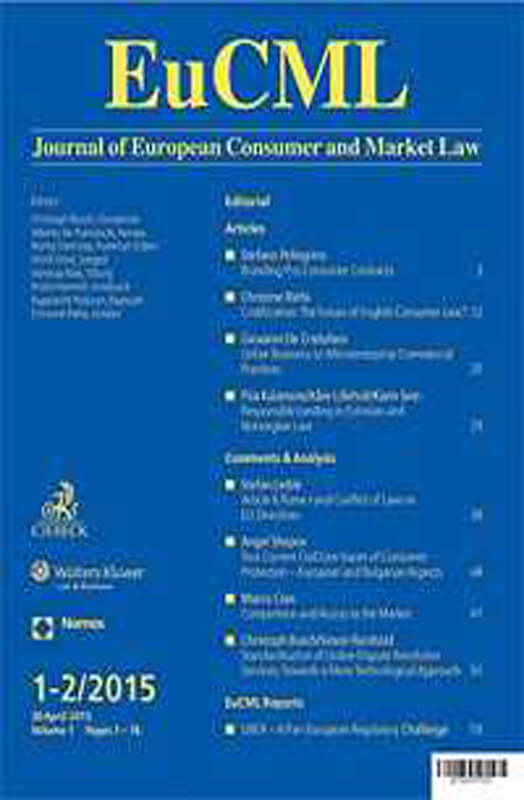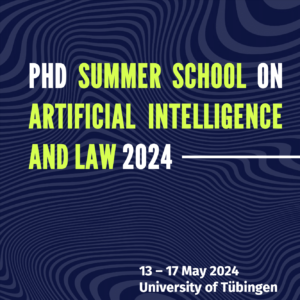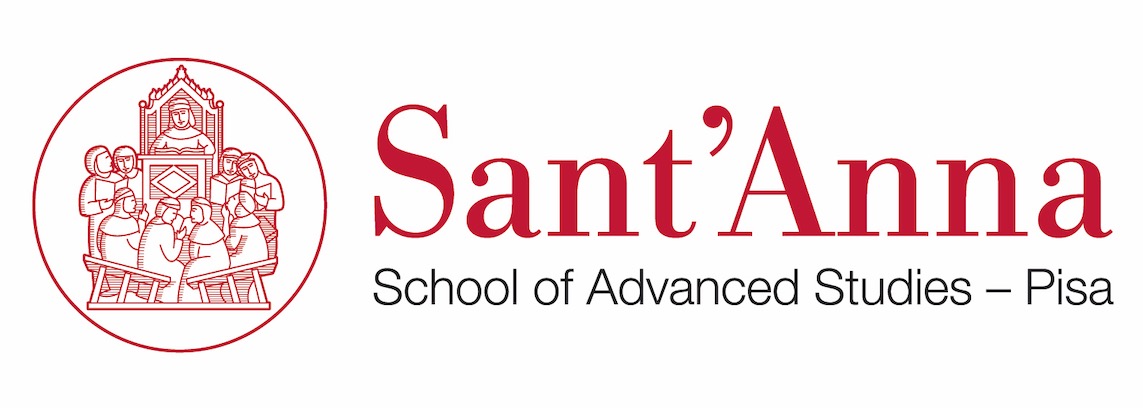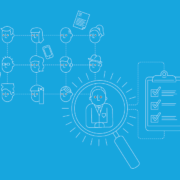In this special edition of our blog posts, our ESRs write about their experiences and insights they made during their secondments.
Secondments enable ESRs to engage with prominent academics and practitioners at both partner universities and research institutes as well as industrial and regulatory entities. ESRs gain practical experience in how their research might translate into real-life problems encountered by businesses. At the same time, ESRs will be able to complement their research with practical experiences gained throughout the secondment and adapt their research projects accordingly. Finally, they also constitute an invaluable networking opportunity and grant our ESRs the possibility to identify possible career paths. Whether in the academic, regulatory, or industry sectors.
Each ESR will complete two secondments: one at a beneficiary (universities and research institutes) and one at the partners (industry or regulatory bodies) of the LeADS project.
ESR Fatma Doğan at University of Piraeus and GPDP
Fatma S. Doğan started on her first secondment at the University of Piraeus in September 2023. During this one-month period, Fatma undertook her secondment at the Data and Cloud Lab under the guidance of Prof. Dimosthenis Kyriazis.  Fatma had the chance to communicate with fellow researchers about their studies, and through this exchange, possible collaborations have emerged, given several studies conducted on health data within the University of Piraeus. Fatma also attended the European Researchers’ Night event in Athens on September 29. At this scientific fair, Fatma and fellow ESRs promoted the LeADS project while at the same time engaging with researchers from various fields.
Fatma had the chance to communicate with fellow researchers about their studies, and through this exchange, possible collaborations have emerged, given several studies conducted on health data within the University of Piraeus. Fatma also attended the European Researchers’ Night event in Athens on September 29. At this scientific fair, Fatma and fellow ESRs promoted the LeADS project while at the same time engaging with researchers from various fields.
Continuing her studies from December 18th to April 30th, 2024, Fatma is undertaking her non-academic secondment at the  Italian Data Protection Authority (GPDP) in Rome. She conducts her studies under the supervision of Dr. Roberto Lattanzi and Dr. Cosimo Comella, focusing on the evolving landscape of data protection regulations, particularly the proposed European Health Data Space regulation. On February 9th, Fatma attended the “State of AI” conference organized as part of the Privacy Symposium. The conference welcomed several esteemed guests from Member States’ supervisory bodies and tech companies such as Google, Meta, and Microsoft. During this full-day event, possible outcomes of the AI Act were evaluated by panel attendees. Speakers from international bodies such as NATO and OECD provided a novel vision to the audience. GPDP’s investigation of OpenAI regarding its data protection breaches of GDPR was also discussed in terms of setting a precedent.
Italian Data Protection Authority (GPDP) in Rome. She conducts her studies under the supervision of Dr. Roberto Lattanzi and Dr. Cosimo Comella, focusing on the evolving landscape of data protection regulations, particularly the proposed European Health Data Space regulation. On February 9th, Fatma attended the “State of AI” conference organized as part of the Privacy Symposium. The conference welcomed several esteemed guests from Member States’ supervisory bodies and tech companies such as Google, Meta, and Microsoft. During this full-day event, possible outcomes of the AI Act were evaluated by panel attendees. Speakers from international bodies such as NATO and OECD provided a novel vision to the audience. GPDP’s investigation of OpenAI regarding its data protection breaches of GDPR was also discussed in terms of setting a precedent.
In general, it has been and still is an enriching experience to witness the breakthroughs of AI technologies at GPDP. Though these breakthroughs excite us all, they bring numerous concerns regarding data protection. As one of the supervisory bodies closely following these technological developments, investigations conducted by GPDP remind us of these concerns.
Read more about the latest investigations about OpenAI’s SORA here.
ESR Robert L. Poe at Paul Sabatier III and AGCM
I spent the late spring and early summer of 2023 at Paul Sabatier III in Toulouse, researching algorithmic fairness and  non-discrimination under the guidance of the mathematician, Prof. Jean-Michel Loubes. Prof. Loubes has published extensively in the field of fair machine learning, and the afternoons spent brainstorming with him were well spent. While there, I and fellow ESR Soumia El Mestari finished our Working Paper, a final draft of which will be presented in June of this year at ACM FAccT in Brazil. I also finished a second paper which was presented in the autumn of 2023 at the European
non-discrimination under the guidance of the mathematician, Prof. Jean-Michel Loubes. Prof. Loubes has published extensively in the field of fair machine learning, and the afternoons spent brainstorming with him were well spent. While there, I and fellow ESR Soumia El Mestari finished our Working Paper, a final draft of which will be presented in June of this year at ACM FAccT in Brazil. I also finished a second paper which was presented in the autumn of 2023 at the European  Conference on Machine Learning and Data Mining. While my time in Toulouse was productive, it was also enjoyable. I look back fondly on the many lunches shared with fellow ESR Barbara Lazarotto, Mohamed Ali Kandi and Giorgia Macilotti, discussing the sociological effects of emerging technologies and whether and how certain risks might be mitigated.
Conference on Machine Learning and Data Mining. While my time in Toulouse was productive, it was also enjoyable. I look back fondly on the many lunches shared with fellow ESR Barbara Lazarotto, Mohamed Ali Kandi and Giorgia Macilotti, discussing the sociological effects of emerging technologies and whether and how certain risks might be mitigated.




 ESR Onntje Hinrichs’ article on “Consumer Law and the Regulation of the Free Flow of Data: Upsetting the Balance of the European Data Protection Framework” has been published in the Journal of European Consumer and Market Law (EuCML).
ESR Onntje Hinrichs’ article on “Consumer Law and the Regulation of the Free Flow of Data: Upsetting the Balance of the European Data Protection Framework” has been published in the Journal of European Consumer and Market Law (EuCML).





 secondment at Scuola Superiore Sant’Anna (SSSA) in Pisa, Italy. Both secondments provided him with valuable, new perspectives and insights on his LeADS research topic on ‘solving conflicts between data holders and exploiters through a spectrum of quasi-property models’ and thus the broader question on how to solve and deal with conflicting interests in data by different stakeholders.
secondment at Scuola Superiore Sant’Anna (SSSA) in Pisa, Italy. Both secondments provided him with valuable, new perspectives and insights on his LeADS research topic on ‘solving conflicts between data holders and exploiters through a spectrum of quasi-property models’ and thus the broader question on how to solve and deal with conflicting interests in data by different stakeholders. research, training and consulting and benefits from the interdisciplinary milieu of SSSA. In addition to regular seminaries which are highly relevant for his LeADS research topic, such as a presentation by Prof. Tao Qian from China University of Political Science and Law on ‘AI and Copyright – Comparison between China and the EU’, Onntje will present his PhD research to members of the Lab by the end of May 2024. Discussions and feedback provided by researchers at SSSA will thus enable him to further improve and refine his PhD research.
research, training and consulting and benefits from the interdisciplinary milieu of SSSA. In addition to regular seminaries which are highly relevant for his LeADS research topic, such as a presentation by Prof. Tao Qian from China University of Political Science and Law on ‘AI and Copyright – Comparison between China and the EU’, Onntje will present his PhD research to members of the Lab by the end of May 2024. Discussions and feedback provided by researchers at SSSA will thus enable him to further improve and refine his PhD research. Under the supervision of Prof. Fryderyk Zoll and Dr. Katarzyna Południak-Gierz at Jagiellonian University, Qifan Yang engaged in rigorous research activities aimed at unravelling the complexities surrounding the control of personal data and its impact on market competition and other aspects. By exploring real-world case studies, such as the Facebook case, she further analysed the regulatory challenges from data-driven anti-competitive strategies to the implications of mergers and acquisitions within data-intensive sectors, like social media. Additionally, she also explored concepts in consumer protection law, liability law, and behavioural economics, enhancing her understanding of the broader implications of data concentration on privacy reduction.
Under the supervision of Prof. Fryderyk Zoll and Dr. Katarzyna Południak-Gierz at Jagiellonian University, Qifan Yang engaged in rigorous research activities aimed at unravelling the complexities surrounding the control of personal data and its impact on market competition and other aspects. By exploring real-world case studies, such as the Facebook case, she further analysed the regulatory challenges from data-driven anti-competitive strategies to the implications of mergers and acquisitions within data-intensive sectors, like social media. Additionally, she also explored concepts in consumer protection law, liability law, and behavioural economics, enhancing her understanding of the broader implications of data concentration on privacy reduction. in the Office of the Chief Economist, she focused on assessing the effectiveness of personal data protection policies and their implications for market dynamics. One of her primary tasks involved analysing the interplay between personal data protection and market competition, evaluating market dominance, unfair competition practices, and monopolistic behaviours in the digital economy. Practical policy evaluations, including those related to personal data protection and competition law, honed her analytical skills and provided a nuanced understanding of regulatory frameworks.
in the Office of the Chief Economist, she focused on assessing the effectiveness of personal data protection policies and their implications for market dynamics. One of her primary tasks involved analysing the interplay between personal data protection and market competition, evaluating market dominance, unfair competition practices, and monopolistic behaviours in the digital economy. Practical policy evaluations, including those related to personal data protection and competition law, honed her analytical skills and provided a nuanced understanding of regulatory frameworks. Norway as a prominent and fast-growing technology company. Maciej joined Tellu to work on projects related to the fast and secure deployment of IoT devices as well as robust and automatic authentication in a decentralized environment.
Norway as a prominent and fast-growing technology company. Maciej joined Tellu to work on projects related to the fast and secure deployment of IoT devices as well as robust and automatic authentication in a decentralized environment.
 Fatma had the chance to communicate with fellow researchers about their studies, and through this exchange, possible collaborations have emerged, given several studies conducted on health data within the University of Piraeus. Fatma also attended the European Researchers’ Night event in Athens on September 29. At this scientific fair, Fatma and fellow ESRs promoted the LeADS project while at the same time engaging with researchers from various fields.
Fatma had the chance to communicate with fellow researchers about their studies, and through this exchange, possible collaborations have emerged, given several studies conducted on health data within the University of Piraeus. Fatma also attended the European Researchers’ Night event in Athens on September 29. At this scientific fair, Fatma and fellow ESRs promoted the LeADS project while at the same time engaging with researchers from various fields. Italian Data Protection Authority (GPDP) in Rome. She conducts her studies under the supervision of Dr. Roberto Lattanzi and Dr. Cosimo Comella, focusing on the evolving landscape of data protection regulations, particularly the proposed European Health Data Space regulation. On February 9th, Fatma attended the “State of AI” conference organized as part of the Privacy Symposium. The conference welcomed several esteemed guests from Member States’ supervisory bodies and tech companies such as Google, Meta, and Microsoft. During this full-day event, possible outcomes of the AI Act were evaluated by panel attendees. Speakers from international bodies such as NATO and OECD provided a novel vision to the audience. GPDP’s investigation of OpenAI regarding its data protection breaches of GDPR was also discussed in terms of setting a precedent.
Italian Data Protection Authority (GPDP) in Rome. She conducts her studies under the supervision of Dr. Roberto Lattanzi and Dr. Cosimo Comella, focusing on the evolving landscape of data protection regulations, particularly the proposed European Health Data Space regulation. On February 9th, Fatma attended the “State of AI” conference organized as part of the Privacy Symposium. The conference welcomed several esteemed guests from Member States’ supervisory bodies and tech companies such as Google, Meta, and Microsoft. During this full-day event, possible outcomes of the AI Act were evaluated by panel attendees. Speakers from international bodies such as NATO and OECD provided a novel vision to the audience. GPDP’s investigation of OpenAI regarding its data protection breaches of GDPR was also discussed in terms of setting a precedent. non-discrimination under the guidance of the mathematician, Prof. Jean-Michel Loubes. Prof. Loubes has published extensively in the field of fair machine learning, and the afternoons spent brainstorming with him were well spent. While there, I and fellow ESR Soumia El Mestari finished our Working Paper, a final draft of which will be presented in June of this year at ACM FAccT in Brazil. I also finished a second paper which was presented in the autumn of 2023 at the European
non-discrimination under the guidance of the mathematician, Prof. Jean-Michel Loubes. Prof. Loubes has published extensively in the field of fair machine learning, and the afternoons spent brainstorming with him were well spent. While there, I and fellow ESR Soumia El Mestari finished our Working Paper, a final draft of which will be presented in June of this year at ACM FAccT in Brazil. I also finished a second paper which was presented in the autumn of 2023 at the European 
 During the first secondment, Soumia had the chance to exchange and collaborate with the CNR teams and ESRs that work on adjacent topics to hers. As Soumia’s research focus is around privacy issues in machine learning pipelines, her time in CNR was valuable since it allowed her to explore other horizons in the same topic as well as learn different approaches of privacy especially those related to federated learning and K-anonymity techniques. During that period, Soumia worked on different projects including the WOPA paper on fairness in machine learning systems and another collaboration project to study privacy attacks in federated learning settings.
During the first secondment, Soumia had the chance to exchange and collaborate with the CNR teams and ESRs that work on adjacent topics to hers. As Soumia’s research focus is around privacy issues in machine learning pipelines, her time in CNR was valuable since it allowed her to explore other horizons in the same topic as well as learn different approaches of privacy especially those related to federated learning and K-anonymity techniques. During that period, Soumia worked on different projects including the WOPA paper on fairness in machine learning systems and another collaboration project to study privacy attacks in federated learning settings. protection for machine learning systems. The exchange she had shaped the legal side of her thesis and equipped her with the necessary background to be as flexible in the legal discussion of privacy-preserving machine learning tools as she is on the technical side of the topic.
protection for machine learning systems. The exchange she had shaped the legal side of her thesis and equipped her with the necessary background to be as flexible in the legal discussion of privacy-preserving machine learning tools as she is on the technical side of the topic. The main challenge of my research is evaluating trust and reliability in data processing using data quality criteria. This period at University of Luxembourg (UL) was an opportunity to discuss with several data management, cybersecurity, finance, entrepreneurship and innovation, and law teachers concerning a survey on data quality criteria. These exchanges allowed me to perform the methodology and results of my survey. Finally, they suggested that I interview data professionals from different domains to consolidate my academic findings. Then, we proposed a draft to conduct these interviews to get the best feedback from the data professionals.
The main challenge of my research is evaluating trust and reliability in data processing using data quality criteria. This period at University of Luxembourg (UL) was an opportunity to discuss with several data management, cybersecurity, finance, entrepreneurship and innovation, and law teachers concerning a survey on data quality criteria. These exchanges allowed me to perform the methodology and results of my survey. Finally, they suggested that I interview data professionals from different domains to consolidate my academic findings. Then, we proposed a draft to conduct these interviews to get the best feedback from the data professionals. results. As data quality is a current concern in the data processing ecosystem, I have provided a framework that lists 30 relevant data quality criteria in the literature review. From the definitions of the literature review, I proposed a unified and standardized definition for each criterion. At Intel Corporation, I had the opportunity to interview several data actors in the European area about data quality challenges. Then, I collected the opinions on the relevant criteria for each professional (their criteria, definitions and evaluation levels). Finally, I analyzed the feedback and compared it with my previous findings.
results. As data quality is a current concern in the data processing ecosystem, I have provided a framework that lists 30 relevant data quality criteria in the literature review. From the definitions of the literature review, I proposed a unified and standardized definition for each criterion. At Intel Corporation, I had the opportunity to interview several data actors in the European area about data quality challenges. Then, I collected the opinions on the relevant criteria for each professional (their criteria, definitions and evaluation levels). Finally, I analyzed the feedback and compared it with my previous findings.


 ESR Mitisha Gaur’s groundbreaking work, “The Adequacy of the AI Act’s Fundamental Impact Assessment in Cases of High-Risk AI Systems by Government Agencies,” has been featured in the thought-provoking e-book “Safeguarding the Right to Good Administration in the Age of AI,” published by The Digital Constitutionalist.
ESR Mitisha Gaur’s groundbreaking work, “The Adequacy of the AI Act’s Fundamental Impact Assessment in Cases of High-Risk AI Systems by Government Agencies,” has been featured in the thought-provoking e-book “Safeguarding the Right to Good Administration in the Age of AI,” published by The Digital Constitutionalist.